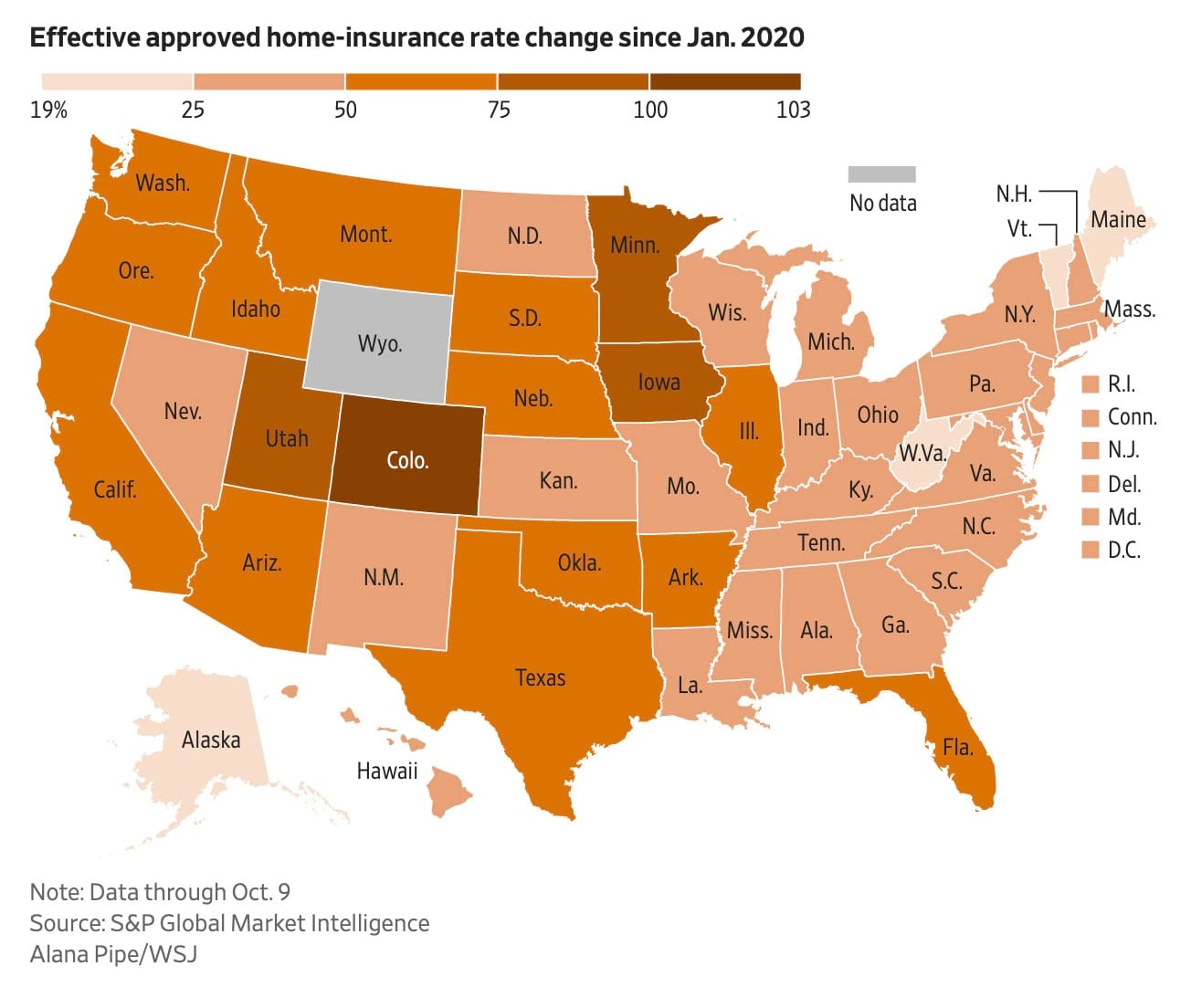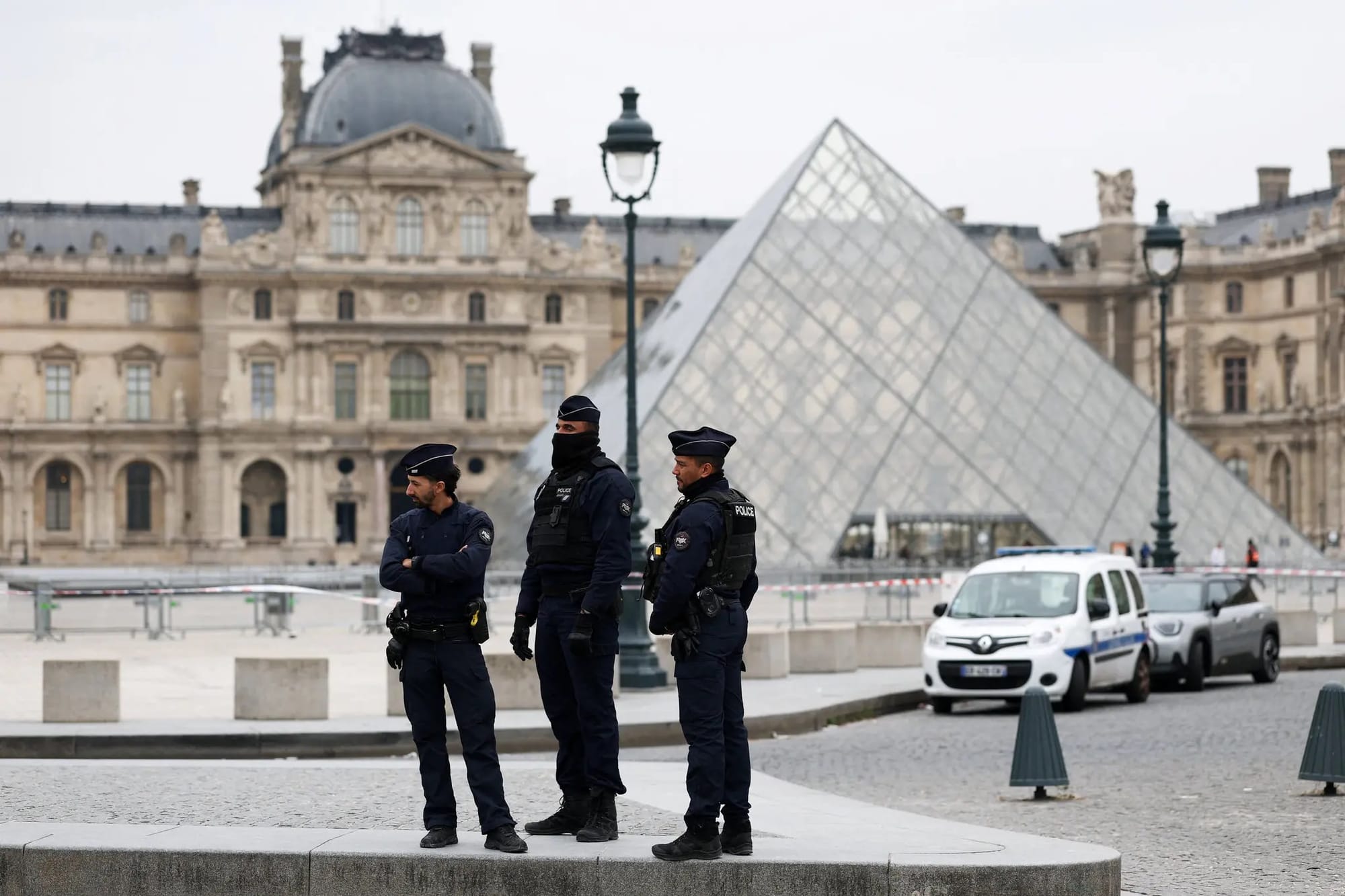Top 5 US news stories
October 20 2025

China’s Grip on Rare-Earths Market Decades in the Making
Healthcare Subsidy Cliff Looms Amid Shutdown Talks; Soaring Insurance Rates Spark Price Control Debates
Data Suggests San Francisco Rebound: Crime Falls 28%, Rents Climb for 13th Straight Month
'Stop Trump' Strategy Dominates Democratic Ads in NJ, VA Governor Races
Royal Jewels Stolen From Louvre in Seven-Minute Heist

…US GOVERNMENT SHUTDOWN ENTERS 20th DAY…
1. China’s Grip on Rare-Earths Market Decades in the Making
When China tightened restrictions on rare-earth exports this month, stunning the White House, it was the latest reminder of Beijing’s control over an industry vital to the world economy. Its dominance was decades in the making. Since the 1990s, China has used aggressive tactics to build up and maintain its lock over rare-earth minerals, which are essential to making magnets needed for cars, wind turbines, jet fighters and other products. Beijing provided financial support to the country’s leading companies, encouraged them to snap up rare-earth assets abroad, and passed laws preventing foreign companies from buying rare-earth mines in China. It eventually consolidated its domestic industry from hundreds of businesses into a few giant players, giving it further leverage over prices. When the U.S. tried to engineer a revival of its domestic industry a few years ago, China flooded the market with supply, throwing Western producers into a tailspin. As Western rare-earth companies’ valuations collapsed from the low prices caused by soaring Chinese production, they were forced to slow their expansions, and in some cases, sell their mines to Chinese buyers. Beijing’s methodical approach to dominating the industry—it now produces around 90% of global refined supply—reflects China’s ability to use state control over the economy to achieve goals that often elude the U.S., where policymaking is more erratic. It also suggests that fresh U.S. efforts to resurrect its domestic rare-earths industry could prove difficult to sustain. Washington has committed to spending billions of dollars investing in a major U.S. producer and purchasing its output, among other steps. But China is likely to do everything it can to ensure it doesn’t lose its rare-earth leverage. Earlier this month, China said it would require companies that make magnets abroad using Chinese rare-earth materials to seek permission from Beijing before exporting. President Trump responded by threatening an additional 100% tariff rate on Chinese goods, though he later said that would be unsustainable.
WSJ
2. Healthcare Subsidy Cliff Looms Amid Shutdown Talks; Soaring Insurance Rates Spark Price Control Debates
A. WASHINGTON—The window for extending billions of dollars in Americans’ healthcare subsidies is closing rapidly. Enhanced Affordable Care Act subsidies are set to end after this year unless Congress acts, and open enrollment for insurance next year starts next month. Democrats have demanded that Republicans negotiate on extending the subsidies as a condition for ending the government shutdown, now in its third full week. Republicans recognize that many of their voters will be hurt by a cutoff in tax credits, but say the program known as Obamacare needs major changes. Any deal to end the shutdown is expected to involve a fix for the expiring ACA subsidies, which flow to more than 20 million people. But extending the enhanced subsidies would be difficult to swallow for Republicans in Congress, who have spent the past decade and a half railing against the 2010 law that passed—and was later expanded—with only Democratic votes. “Actually being able to write something that can be put in effect between now and Nov. 1? I don’t know how it gets done,” said Sen. Mike Rounds (R., S.D.). “There are fundamental differences between what Republicans want and what Democrats want on this issue.”
B. America is in a cost crisis when it comes to home and auto insurance. A number of states have a controversial answer: price controls. Illinois lawmakers are considering a ban on home insurers hiking rates because of catastrophes in other states. Louisiana recently handed its regulator the power to strike down “excessive” premiums. New York lawmakers are investigating soaring home-insurance costs, with a view to potential new curbs. In Michigan, Democratic lawmakers this summer proposed a law to impose a 10% cut in auto-insurance rates. “Rate increases are top of mind for every policymaker across the country. Consumers are going to them and saying, ‘I can’t deal with a 30% rate increase, or a 40% rate increase’,” said Jon Godfread, president of the National Association of Insurance Commissioners. America’s economy is built on open competition and the ability of industry to set prices—except when it comes to insurance. Governments play a role in setting prices in local, regulated monopolies such as electricity and water. Among competitive industries, insurance is an outlier. Soaring rates are piling pressure on politicians. And increasingly insurers, in both red states and blue states, are being told to cap prices.

WSJ
3. Data Suggests San Francisco Rebound: Crime Falls 28%, Rents Climb for 13th Straight Month
SAN FRANCISCO—San Francisco is back. Or at least on its way. Crime rates have dropped to their lowest levels in decades and continue to fall, with burglaries, a particular nuisance to homeowners and tourists, down 28% this year. The homeless tent encampments that block sidewalks and bedevil retail businesses have shrunk, while foot traffic and transit ridership have risen. Rents overall are up 12% year over year in the city proper, with September marking the 13th month in a row of consecutive growth, according to Apartments.com. And the hotel industry is showing signs of recovery.
WSJ
4. 'Stop Trump' Strategy Dominates Democratic Ads in NJ, VA Governor Races
In New Jersey, the most expensive attack ad in the governor’s race so far this fall accuses the Republican nominee, Jack Ciattarelli, of wanting to be “the Trump of Trenton.” In Virginia, Abigail Spanberger, the Democratic nominee for governor, has spent millions of dollars casting her Republican rival, Lt. Gov. Winsome Earle-Sears, as an acolyte of President Trump and supporter of his policies. “Sears speaks for Trump,” the narrator warns in one recent ad. And in California, a blizzard of TV ads has urged voters to fight against Mr. Trump — by backing a ballot measure to redraw the state’s congressional lines. “We can stop Trump cold,” Gavin Newsom, the state’s Democratic governor, says in that campaign’s most-aired ad. After a year of soul-searching and introspection by Democrats about what they should stand for after losing the White House and Senate in 2024, the party is largely coalescing behind the same message that has united it for the past decade: stopping Donald J. Trump.
NYT
5. Royal Jewels Stolen From Louvre in Seven-Minute Heist
The doors of the world’s grandest museum had been opened to the public for just 30 minutes when two burglars were lifted up onto a second-floor balcony on the building’s south side. Their faces concealed, they rode a monte-meubles, a truck-mounted electric ladder that is a common sight on the streets of Paris, where it is used to ferry bulky furniture through the windows of apartments. Once there, they used grinders to break a window, setting off the security alarms, and burst inside the gilded Galerie d’Apollon of the Louvre Museum, where a prized collection of royal jewels and crown diamonds is held in a succession of cases. There they smashed two cases, sounding more alarms, and snatched eight precious objects, including a royal sapphire necklace, a royal emerald necklace and its matching earrings, and a diadem worn by Empress Eugénie, the wife of Napoleon III, France’s 19th-century ruler. The burglars went back down the ladder to a road shouldering the Seine and made their getaway with two waiting members of their team on motor scooters. In all, it took no more than seven minutes.
NYT

October 20 2011: Libyan dictator Muammar al-Qaddafi is killed
On October 20, 2011, Muammar al-Qaddafi, the longest-serving leader in Africa and the Arab world, is captured and killed by rebel forces near his hometown of Sirte. The eccentric 69-year-old dictator, who came to power in a 1969 coup, headed a government that was accused of numerous human rights violations against its own people and was linked to terrorist attacks, including the 1988 bombing of a Pan Am jet over Lockerbie, Scotland.
Libya had joined Iraq and Ukraine in the rare group of nations that gave up nuclear weapons programs, with Qaddafi abandoning his nuclear ambitions in 2003 in exchange for normalized relations with the West. His death came amid a NATO-backed intervention that deeply fractured the American public over yet another Middle East military engagement. Growing opposition to such interventions would help fuel Donald Trump's political rise, culminating in his presidential victory five years later on a platform that included sharp criticism of nation-building and regime-change operations in the region.

We are temporarily pausing our podcasts as we revamp our app so any article can be read as audio
Found a mistake? Have a news tip or feedback to share? Contact our newsroom using the button below:
citizen journal offers three flagship products: a daily national news summary, a daily Kansas news summary, and local news and school board summaries from 25 cities across 5 states. Use the links in the header to navigate to national, kansas, and local coverage. Subscribe to each, some, or all to get an email when new issues are published for FREE!
Brought to you by (click me!)





Sources
- https://www.wsj.com/economy/trade/how-china-took-over-the-worlds-rare-earths-industry-fb668839?st=ax8n8u&reflink=article_copyURL_share
- https://www.wsj.com/politics/policy/government-shutdown-healthcare-aca-funding-fight-d45b2365?st=Gm9ECV&reflink=article_copyURL_share
- https://www.wsj.com/finance/regulation/runaway-insurance-costs-bring-back-talk-of-price-caps-fe4df279?st=SANbip&reflink=article_copyURL_share
- https://www.wsj.com/economy/san-francisco-is-back-cb4a58b1?st=KQPzox&reflink=article_copyURL_share
- https://www.nytimes.com/2025/10/19/us/politics/democratic-campaign-ads-trump.html?smid=nytcore-ios-share&referringSource=articleShare
- https://www.nytimes.com/2025/10/19/world/europe/louvre-paris-robbery.html?smid=nytcore-ios-share&referringSource=articleShare

